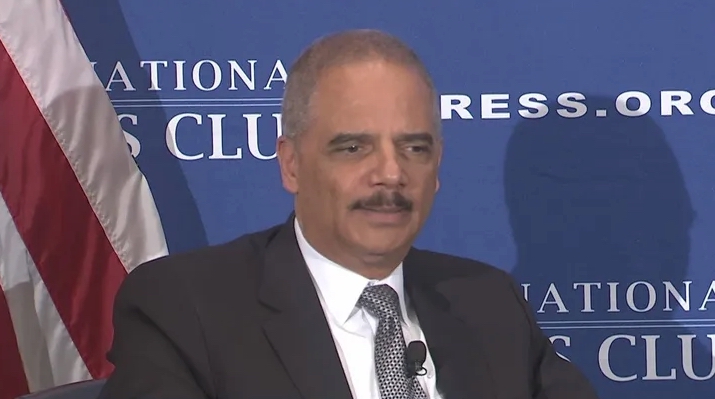My last newsletter mentioned in passing that Pres. Obama’s approach to energy policy was "a sea change in Democratic presidential attitudes toward the importance of affordable electricity." It’s a point I’d like to expand upon this week because it is so vital to America’s future, especially so for the poor.
During the Great Depression, President Roosevelt started the Rural Electrification Administration to bring electricity to rural areas of the country. Though the REA was a stimulus plan that also served as a model for Obama’s green-energy policy, its goal was decidedly different, as far removed as light from dark. At the time, only one out of ten farms had electricity. FDR sought to "rais[e] the standard of living in rural America," to bring to rural homes the "benefits" and "comforts and economic advantages of electricity," and to "promote the economic health and strength of the country."
FDR understood that access to electricity was key to helping the poor and disadvantaged, raising their standard of living, and thereby improving the economic health of the country as a whole. What would he say of policies that deliberately make electricity unaffordable?
As a presidential candidate, then-Sen. Barack Obama was quite open about his plans for energy: a vision of electricity rates that "would necessarily skyrocket," of coal plants so expensive that it would "bankrupt" the company that tried to build one, of deliberately seeking "to boost the price of gasoline to the levels in Europe," and of other ways to "skin the cat" to solve the "problem" of affordable energy, especially through aggressive hyperregulation by the EPA.
One of the reasons for this policy is the Obama administration’s perceived need, through government disruptions of energy markets, to hike standard energy prices so high as to make "green energy" alternatives competitive — "competitive," that is, after also pumping green energy companies full of federal incentives and loan guarantees.
This policy, even by its own standards, has been an absolute failure. Despite truly unprecedented efforts by the federal government to kill a vibrant, vitally important industry and replace it with a politically favored one, the "green" alternatives are the ones going bankrupt, shedding jobs (what few there are), and still being eclipsed by oil and natural gas. The failures seem to come almost daily now (just so, in today’s news: "Another Taxpayer-Funded Solar Company Looks Like a Failure").
Such a wrongheaded policy is dangerous in the best of times, but during a prolonged downturn that even the president’s befuddled media supporters have termed the "Great Recession," it is perverse. The current administration has a specific policy of forcing much higher electricity prices on consumers during a prolonged recession. The best that can be said of such a plan is that it is a complete abdication of any possible claim to "compassion for the poor."
Back when such a plan was merely conjectural, however, Roy Innis, national chairman of the Congress of Racial Equality, called the predictable end results "energy racism." As he wrote in the introduction to his 2008 book Energy Keepers, Energy Killers: The New Civil Rights Battle,
High utility bills are a leading cause of homelessness. Just getting to work every day eats up more and more of our income. Higher energy costs force companies to lay off workers. Some must then choose between heating and eating.
Energy is the "master resource," the foundation for everything else. Abundant, reliable, affordable electricity, natural gas and transportation fuels make our jobs, health and living standards possible.
Energy is the great equalizer, the creator of economic opportunities and true environmental justice.
Push energy prices up and everybody suffers. When energy costs too much, industry lays people off, or just leaves. Jobs, incomes and tax revenues vanish. Government social programs wither. Talent and leadership migrate, to other cities or other countries. Social ills multiply.
Who gets hurt first? The poor and disadvantaged. And we all know that racial and ethnic minorities include more than our fair share of the poor and disadvantaged. The result is energy racism: Policies that unnecessarily raise energy prices destroy jobs, make poor families pay ever larger chunks of their meager incomes for energy, and cause our hard-won victories for voting and civil rights crumble to dust.
That same year, the John Locke Foundation issued a Spotlight report on "Low-Cost Energy: Critical for the Economy and Our Way of Life." Not only were the poor and disadvantaged in North Carolina threatened by gratuitous federal efforts to raise energy prices, but they were also faced with the coming effects of the state’s own Renewable Energy and Energy Efficiency Portfolio Standard (SB 3), passed in 2007 and predicted then to cost North Carolinians $500 million in new electricity taxes by 2021. Those ill effects, those completely unnecessary ill effects, face us all.
To be clear: A government whose policy is deliberately to hike the cost of electricity is a government at war with its poorest, most vulnerable citizens, and a government that is forcing all of its citizens back down the dirt road to diminished living standards, ill health, and privation.
Click here for the Rights & Regulation Update archive.


